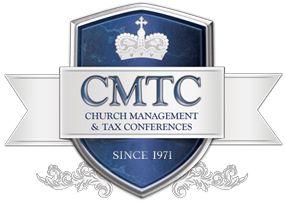|
When people join a church or a member accepts an appointment to a position within that Church, most have no clue as to what they have agreed. Most of those joining a local Church do so out of a sense of “need to belong,” and this is a good thing—every Christian should be a member of a local Church. Most of those who accept a position in the Church, i.e. Deacon, Elder, Treasurer, Board Member, etc. do so out of their desire to serve Christ by serving the local Church body. However, there are things that both—those joining a Church and those accepting a position in a Church—should research prior to doing either. Becoming a member of a Church or accepting a position in a Church may place that individual in a precarious situation because of Internal Revenue Service (IRS) Regulations.
|
Archives
September 2020
Categories |

 RSS Feed
RSS Feed



